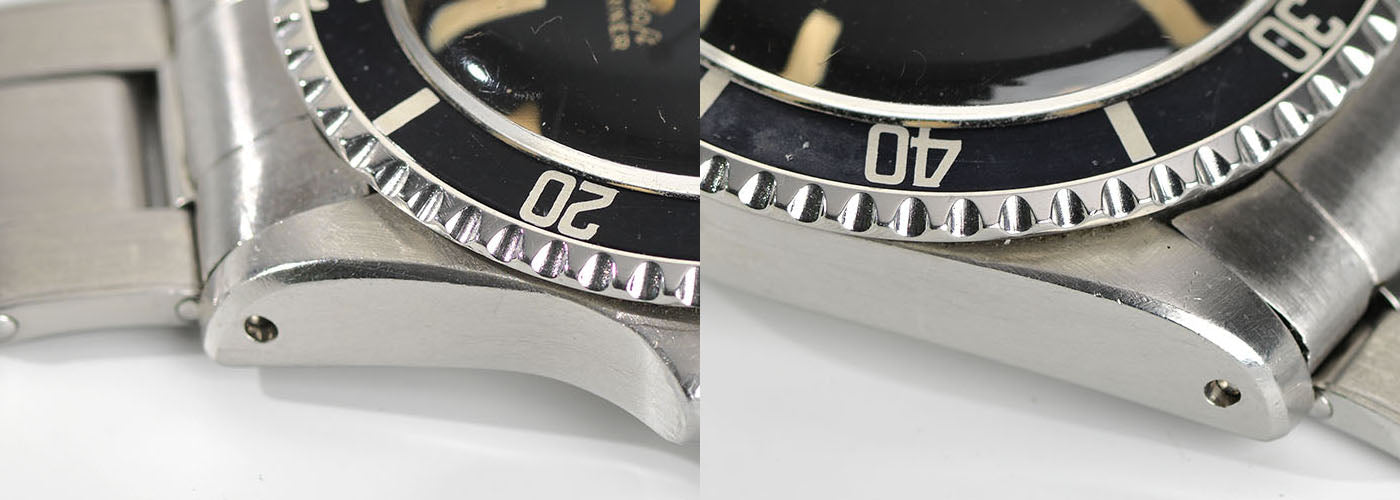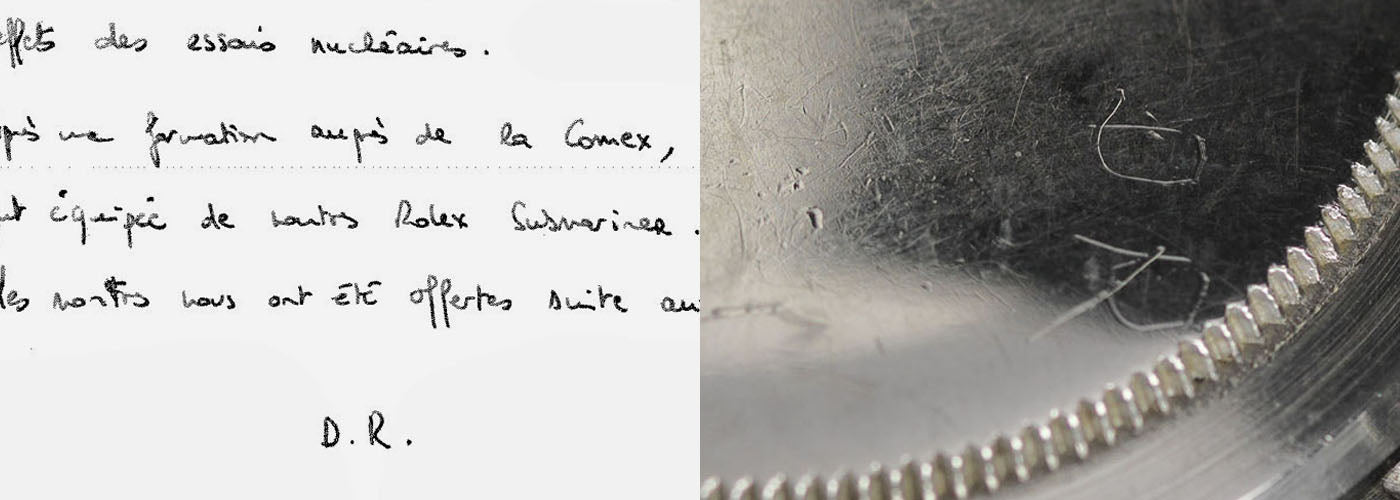The South Pacific Rolex 5513

A Pacific Tool Watch Adventure
We would like to present to you today a very interesting watch that was used in the field by a diver as part of one of the most infamous chapters in the history of modern warfare. This watch has it all – Comex history, use in the field and provenance from its original owner. This Rolex Submariner reference 5513 was issued to a diver, who used it for his work diving off the coast of Moruroa to build scientific monitoring equipment on the seabed. Upon completion of the mission, the Sub was placed in a drawer where it resided until a few years ago. Here’s the story of the South Pacific Rolex 5513…


Testing Times
In the mid-1960s the French Government took the rather unpopular decision to test the capabilities of the emerging technologies of nuclear weaponry. The impact of nuclear fallout was still an emerging knowledge base, but it was vital that locations were chosen where there was no habitation by humans within a significant radius. The French Polynesian islands in the South Pacific have a large number of islands. One particular small ring of coral islands (known as atolls) was chosen, the largest and best known being Moruroa, which is roughly 1250 km from Tahiti – the most densely populated of all the Polynesian Islands. The first test took place in 1966, but on the ground preparations began in 1965.


Earth Moving
Whilst we cannot ignore the sensitivity of nuclear testing and its subsequent impact, the primary purpose of this work was for scientific research. One key area of this research was the impact of explosions on the Earth’s surface – both over ground and below sea level i.e. on the seabed. To measure the movement on the seabed it was necessary to install a seismographic network to monitor activity. A seismometer is essentially an instrument that measures the movement of the earth. My research led me to a declassified United States Navy document from the mid-1960s on the subject and the diagram below shows a typical system from the period:

Comex Connection
The early 1960s were a time of significant development for underwater activity. It began with the successful 1960 Trieste voyage of Jacques Piccard and Don Walsh to the deepest known point of the ocean bed and continued with Robert Stenuit’s 1961 solo 24 hours in a cylinder at a depth of 200m, making him the world’s first aquanaut. This was also the time at which Henri Germain Delauze founded his pioneering deep sea diving development company Compagnie Maritime d’Expertises or as it is better known Comex. Comex became the go to company for underwater operations and training for deep sea diving.


Commissioning Comex
The French Government tasked the L’Ecole Normale Superieur (ENS) in Paris to carry out the work on the seismographic network. The ENS is one of the most prestigious higher educational establishments in France, with a very competitive entrance criteria and a rich history of links to the government and key academic research. The Physics Research Department led on the work and had divers trained by Comex for the sensitive installation of the seismometers. As part of the training in 1965, each of the divers were issued a Rolex 5513 by the Government for their work in French Polynesia. The first tests took place in 1966, by which time the divers had returned home having completed their mission.

Time Capsule
The watch was used for the diving project in 1965 and it was during one of its adventures that the bezel popped off and sank to the pacific sea bed(where it presumably remains until this day). Following completion of the mission it was placed in a drawer, where it remained until 2012. At this point the watch had a movement service (which it obviously would have needed!) following its near fifty-year hibernation. The specialist watchmaker also changed the crystal (a NOS Tropic 19) and seals and stabailised the luminous material in the hands to preserve this historically important Rolex tool watch. Also the lost bezel was replaced with a later version and a nice (but slightly later) rivet bracelet was married to the watch. Other than that, the watch is exactly as issued with the case in the same beautiful condition as when worn in the 1960s.



Sharp Case
The case profile of this watch is amazing…the elegant line of the chamfers on the lugs is stunning. The sharp edges of the drilled lug holes on the sides of the case, sitting alongside the ‘fat’ crown guards are a rare sight on a watch of this age. Seeing the intact original bevels on a watch of this age is a rare sight and it is a key aspect of the 5513’s charm.


Gilty Dial
The Submariner 5513 had gilt dials in three different variants over its course from approximately 1963 until 1966. This watch, quite correctly, has the second version with ‘SWISS T<25’ at the bottom of the dial (version one has ‘SWISS’ only at the bottom and the final version is the ‘Bart Simpson’ dial). The gilt dials ran until the fourth quarter of 1966 and then the matte dial were introduced in quarter one of 1967. This second version can be found in watches from 1964/65, which is the time that the watches would have been sourced through Rolex France for the Divers. The dial on this example has aged beautifully and has remained in stunning condition for its age. The hands’ luminous material has taken on a very dark color that we believe gives this watch a very cool look. There are bursts of color that match the dial hour plots in all three hands, which gives an almost camo effect to the over all look. This watch oozes original character.


Owners Mark
The caseback features the rather roughly etched owner’s initials, which is a lovely original touch for the watch. He engraved his watch to enable him to differentiate it from other watches issued to the team. There is something very charming and personal about the engraving and I can imagine ‘Mr D.R.’ sitting on the ship or the beach carefully making the inscription with his diving knife. With issued watches collectors often like to see ‘official’ caseback marking, which can be verified against other known examples or delivery lists. We love the authentic and obviously crude way thiese “D.R.” markings sit on the watch – actually not unlike some of the Canadian Navy issued Tudors we have discussed here before.



Rich History
In summary, this is a very appealing and highly desirable watch on its own merit…it’s a gilt 5513! When you add the special history, imagine the adventures that it has embarked on and exotic locations in which it was used, it lifts the watch to another level. A genuinely untouched, all original and issued watch (with a Comex link)…who could ask for more?



